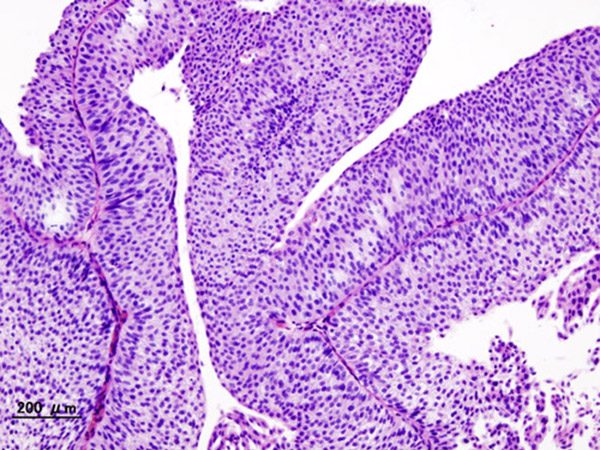Langerhans Cell Histiocytosis

Langerhans cell histiocytosis (LCH) is a rare disorder that begins in a type of dendritic cell that fights infection. Sometimes there are mutations in LCH cells as they form. These include mutations of the BRAF gene. These changes may make the LCH cells grow and multiply quickly. This causes LCH cells to build up in certain parts of the body, where they can damage tissue or form lesions. It is not known whether LCH is a form of cancer or a cancer-like disease, but doctors who treat cancer also treat LCH.
LCH may occur at any age, but is most common in young children. Treatment of LCH in children is different from treatment of LCH in adults.
Risk factors for LCH include:
- having a parent who was exposed to certain solvents;
- having a parent who was exposed to metal, granite, or wood dust in the workplace;
- a family history of cancer, including LCH;
- having infections as a newborn;
- having a personal history or family history of thyroid disease; and
- smoking, especially in young adults.
Source: National Cancer Institute



